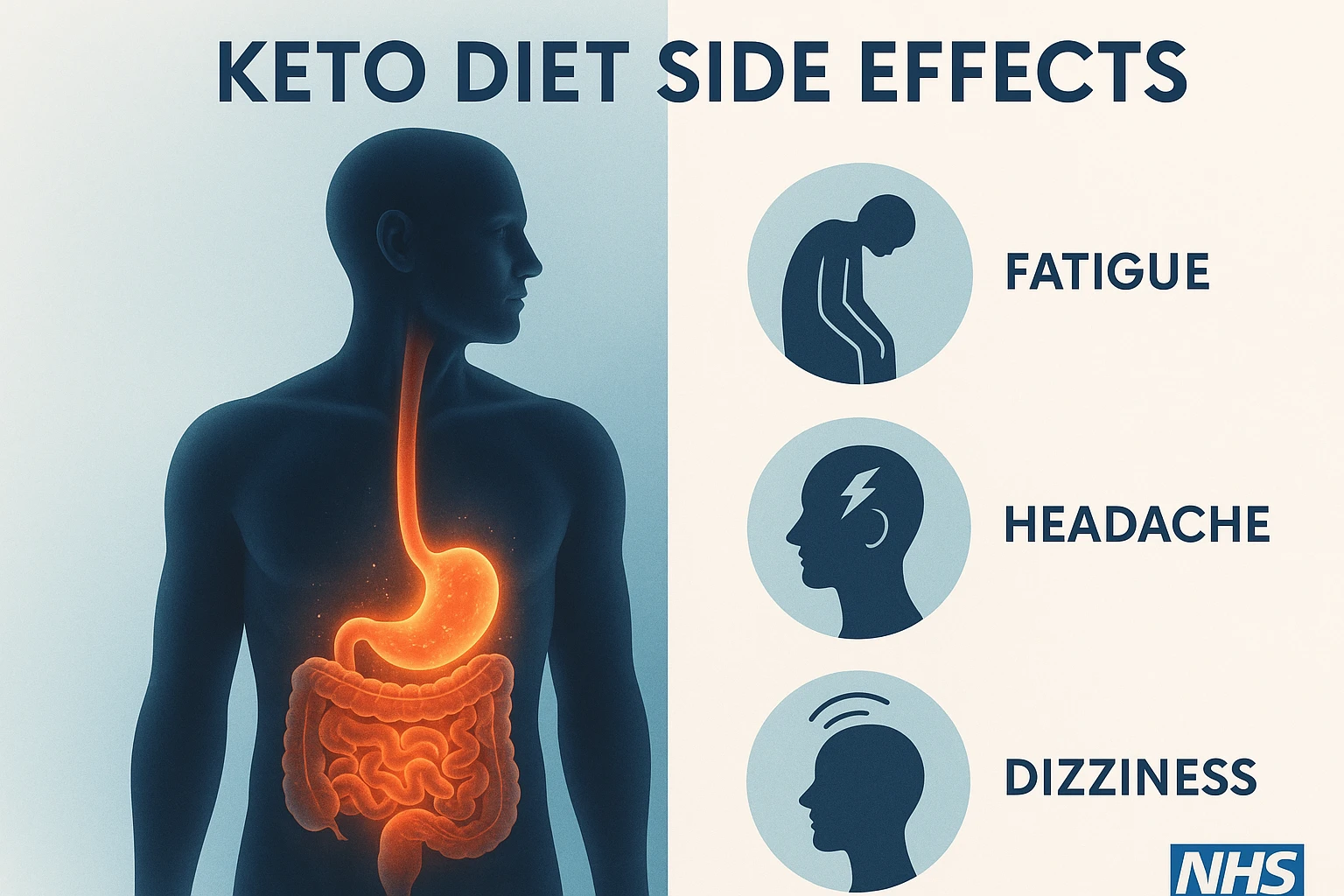Understanding Keto Diet Side Effects: Insights from the NHS
Introduction
Hello, my fellow health aficionados! If you’re contemplating the keto diet—and who hasn’t, with all the buzz?—I’m here to offer you the scoop on what you might encounter along this high-fat, low-carb adventure. The NHS and numerous studies abound with insights, shedding light on potential side effects that deserve your attention. So, let’s embark on this learning journey and bust a few myths while we’re at it.
Key Takeaways
- Digestive Dilemmas: Keto can cause constipation and gut woes.
- Cholesterol Challenges: Small LDL cholesterol levels might increase.
- Risky Rocks: Potential for kidney stones from high animal fat intake.
- Fuel Fairness: Electrolyte imbalance leads to initial “keto flu.”
Digestive Issues
Your gut, the star of the health show, may throw a tantrum as you dive into the keto lifestyle. The transition could spark digestive issues like constipation, affecting a surprising 68% of adults. This is the result of reduced fiber intake, a study reveals. But don’t fret! There are ways to get your gut in line:
- Chug-a-lug: Hydration is key; water helps keep things moving.
- Veggie tales: Opt for keto-friendly fiber like zucchini and spinach.
- Probiotic power: Keep your microbiome friendly with supplements.
Cholesterol Concerns
Now, here’s a topic that can stir up quite the nerve. The keto diet has been linked to elevated small and medium-sized LDL cholesterol levels, which aren’t the pals you want on your cardiovascular journey. According to insightful research, this could hike up heart disease risks.
- Balance act: Incorporate heart-healthy fats like olive oil and avocados.
- Check it: Regular cholesterol checks to monitor changes.
- Puzzle piece: Consult with healthcare professionals prior to dietary changes.
Kidney Health
Who knew the keto diet could be a double-edged sword for your kidneys? Studies show that high intake of animal meats may increase the risk of kidney stones, particularly if you’re prone to them—a concern backed by detailed reports.
- Veggie variety: Mix in plant-based proteins to balance the scale.
- Monitor minerals: Keep an eye on calcium and uric acid levels.
- Doctor dialog: Have a chat with your physician about risks.
Keto Flu Syndrome
Speaking of transitions – Hello, Keto Flu! The body adjusting to the lack of carbs can mimic flu-like symptoms, making you feel dizzy and fatigued. The NHS and sources note this as a temporary phase which many overcome with a bit of patience and good practice.
- Salt sprinkle: Increase sodium intake to mitigate dizziness.
- Sleepy time: Prioritize rest and recovery to bounce back faster.
- Electro boost: Essential electrolytes like magnesium help lessen symptoms.
FAQs
What are common keto side effects?
Keto side effects can range from digestive discomfort, such as constipation, to electrolyte imbalances that cause dizziness, commonly known as “keto flu.”
Can keto improve my cholesterol levels?
While keto might improve HDL (good cholesterol) levels, it may also increase LDL levels (often the not-so-good type), necessitating regular health checks.
Are there ways to reduce kidney stone risk on a keto diet?
Yes! Incorporating more plant-based proteins and staying hydrated, along with medical oversight, can reduce potential risks.
Conclusion
With the good, the bad, and the gut-wrenching laid-out on our keto-laden plate, it’s safe to say the keto diet isn’t just any diet. It requires fine-tuning and dedication, whispers of caution, and plenty of veggies. By keeping informed about the side effects as illustrated by the NHS, and staying in tune with your body, you can approach this diet with a healthier mindset. After all, isn’t it all about finding that nutritious balance that feels just right? Here’s to making informed choices and savoring life’s delightful feasts!


Leave a Reply